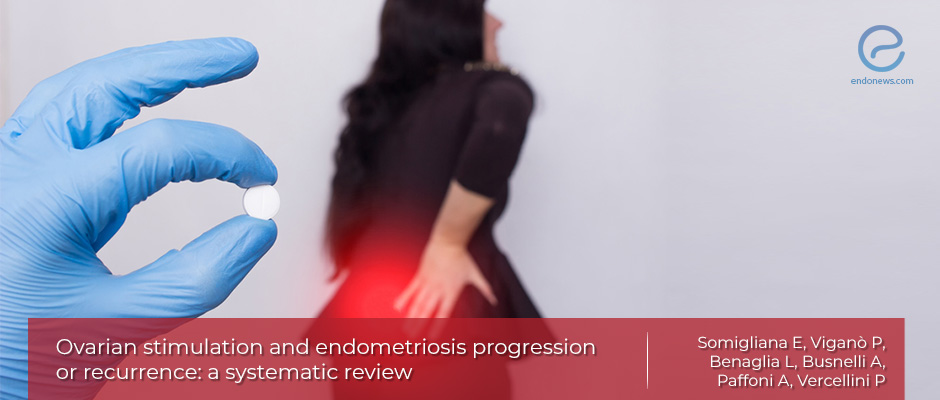Ovarian stimulation regimes: Concerns on progression or recurrence of endometriosis
Apr 11, 2019
Do we have the ultimate result to consider the effects of ART on infertile endometriotic women?
Key Points
Highlights:
- During an ART cycle, peripheral estrogens rise up 10-fold higher. This rise may provoke the recurrence of endometriosis, thus the order for surgery and ART is still debated.
- Still, the definitive evidence is not available and a shared comprehensive decision-making counseling approach with the patient is mandatory.
- The debate on the detrimental effects of ovarian stimulation on endometriosis progression is still open. In particular, the potential effects on deep invasive endometriosis and the possible synergistic effects of pregnancy are two arguments that need to be explored urgently.
Importance:
- The impact of ovarian stimulation on endometriosis is clinically relevant for both patient and physician, but the literature is not enough to evaluate because evidence collection is complex.
What's done here:
- Published research articles on the impact of ovarian stimulation and endometriosis were collected from 1990 to 2018.
- The authors examined the articles of ART and endometriosis recurrence by specifically focusing on endometriosis-related pain symptoms and enlarging ovarian endometrioma after ovarian stimulation.
Key results:
- In 10 studies out of 16, authors call attention to the progression and recurrence of endometriotic lesions after ART regimes.
- IVF does not seem to worsen endometriosis-related pain symptoms (moderate-quality evidence).
- IVF does not seem to increase the risk of endometriosis recurrence (moderate-quality evidence).
- The impact of IVF on ovaries seems to be mild(low-quality evidence).
- Intrauterine insemination may increase the risk of endometriosis recurrence (low-quality evidence).
- With ovarian stimulation, deeply invasive endometriosis may progress (low-quality evidence).
Limitations:
- Some of the reviewed papers consist of case reports and some observational studies are not sensitive statistically.
- As controlled trials on the subject are lacking, this area necessitates further study to reach definitive conclusions, particularly for the potential effects on deep invasive endometriosis and the possible synergistic effect of stimulation and pregnancy.
Lay Summary
Somigliana et al., from the University of Milan, Italy, performed a literature review to predict the endometriosis-enhancing effect of ART regimes on infertile women and reported their results in Reproductive Biomedicine Online.
Their points of interest were increasing dysmenorrhea, dyspareunia, non-menstrual pain and growing of endometriotic lesions during the application of ART.
The quality of case-control and cohort studies were evaluated by Newcastle-Ottowa scale (NOS) to grade the literature as low, moderate or high quality. Meta-analysis cannot be made because of the variability of study designs, duration of follow-up and definitions of outcome.
In 10 studies out of 16, authors call attention to the progression and recurrence of endometriotic lesions after ART regimes.
The literature review of this 16 papers is not enough to assess a decision on the application of ART to endometriotic and infertile patients, that means the particular effect of IVF on progression or recurrence of endometriosis remained unclear.
"The debate on the detrimental effects of ovarian stimulation on endometriosis progression is still open. In particular, the potential effects on deep invasive endometriosis and the possible synergistic effects of pregnancy are two arguments that need to be explored urgently" concluded the authors.
Research Source: https://www.ncbi.nlm.nih.gov/pubmed/30609970
IVF intrauterine insemination ovarian stimulation ART recurrence of endometriosis prophylactic surgery

